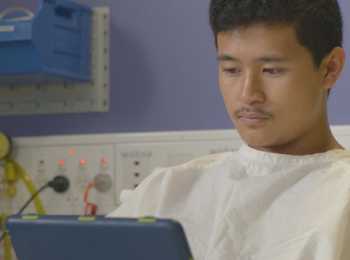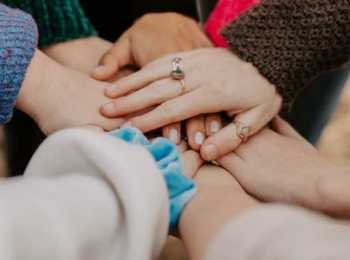Diversity and Inclusion
We are guided by our values and commitments to ensure that everyone at Canteen feels respected, included and safe. We welcome the LGBTQI+ community and people from all cultures, backgrounds and abilities.
When you’re trans or gender-diverse
When dealing with a cancer diagnosis, trans and gender-diverse individuals have unique health needs and concerns.
Trans and gender-diverse people are more likely to have experienced prejudice, bullying and discrimination simply because of who they are. If you've experienced this in the past, it can be very upsetting, making it more stressful when seeking help in healthcare settings. It's your right to feel safe when receiving care in a health facility that is inclusive and respectful of your culture.
At Canteen, we recognise the distress and complexity that comes with a cancer diagnosis, and we're dedicated to providing trans and gender-diverse people, as well as members of the LGBTQI+ community with a wide range of helpful guides, support and resources.
Cancer care and affirming your gender
There are a range of steps trans and gender diverse people may take to affirm their gender. There is no right or wrong way to affirm your gender. It might include:
- Social affirmation, such as choosing your chosen name and pronouns, coming out, wearing new clothing, and cutting or shaving your hair.
- Medical affirmation, such as taking some form of hormones, such oestrogen, testosterone, or progesterone, or having affirmative surgeries, such as chest surgery, genital surgery, facial surgeries, or more.
- Legal affirmation, such as updating your name or gender marker at work, school, or on forms of ID.
I double-check with practitioners that they have read my report, and make sure that they know that I am transgender. This helps me to ascertain what they think about that and how much they know about it, and it also gives them an opportunity to ask any questions. Being transgender is an important part of my care because it means that my body and health outcomes are different to the general population and therefore my treatment should be viewed with this in mind. (genderqueer/man, 23)
You don’t need to tell your health professionals that you’re trans, but knowing this information may help them give you the information that is right for you. If you feel understood by your health professional, you are more likely to trust them. It may also mean you are more likely to complete treatment and have a better experience accessing cancer care.
If you have started any medical interventions to affirm your gender, such as taking hormones or having surgery, you might have questions about how cancer treatment might interrupt or change your plans.
Finding cancer specialists who understand how trans health needs affect cancer care can be challenging. This is frustrating. If they misgender you, you may feel distressed. For more information on your rights at the doctor, see our helpful guide at canteen.org.au/lgbtqi-rights. You can also visit minus18 or chat with counsellors at QLife on 1800 184 527.
If you are a member of the LGBTQI+ community and are looking for additional information on dealing with a cancer diagnosis, please visit canteen.org.au/lgbtqi.


















